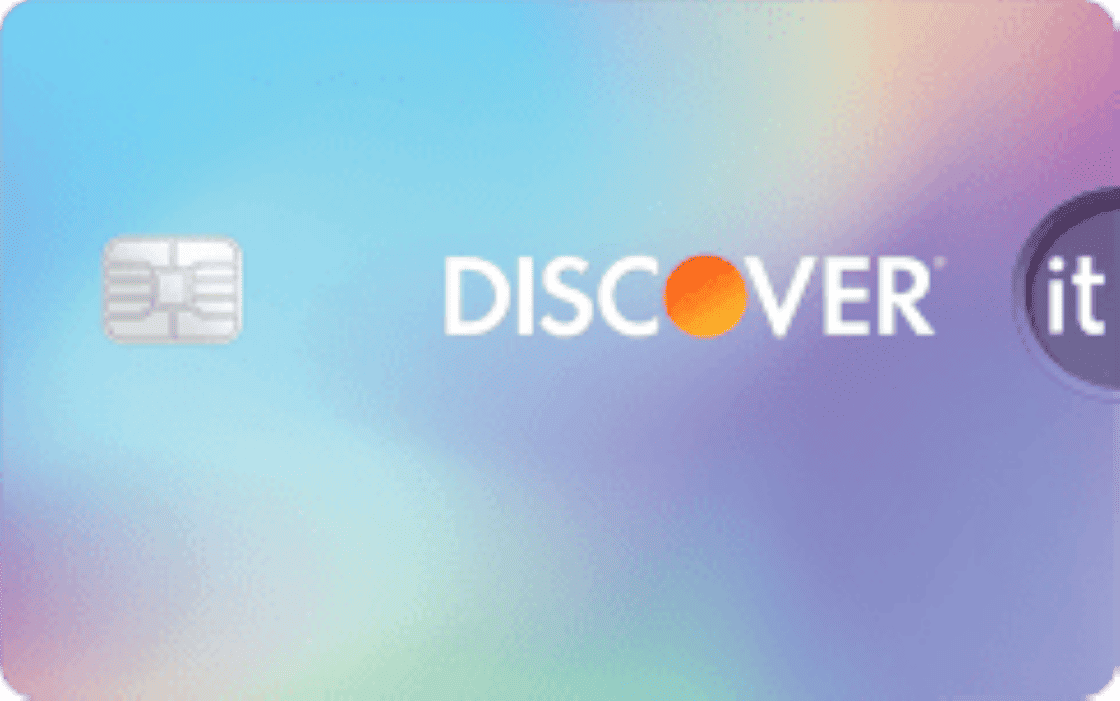Last Updated on March 7, 2024 by Archie Biggs
Stepping into the World of Credit
Have you ever found yourself caught in a riddle that seemed impossible to solve? Entering the world of credit might feel exactly like that. A solid credit history is a golden ticket to loans, credit cards, and sometimes even your dream job or apartment. Starting from ground zero can make it look like a Catch-22 situation. How do you build credit when you don’t have any? Sounds daunting, right? Well, we’re here to tell you it’s not just possible, it’s doable.
Credit Cards: The Key to Unlocking Credit Opportunities
So what’s the key to solve this puzzle? Credit cards tailored for individuals with limited or no credit history. Acting as bridges, these cards help you leap over the chasm separating you from a solid credit profile. But what’s the magic behind their work?
Demonstrating Financial Responsibility with Credit Cards
Imagine credit cards as tools, rather than liabilities. Used wisely, they can mirror your financial responsibility, a critical ingredient to concoct a sturdy credit profile. Regular payments and thoughtful usage can gradually increase your credit score. Sounds like a plan, doesn’t it?
Building Credit with No History: Paving the Path to Financial Independence
And here’s the best part – a better credit score unlocks a treasure trove of financial opportunities. This is your staircase to financial independence. It’s not just about owning a credit card; it’s about unbarring the doors to your future. Intriguing, right?
Understanding Credit-Building Cards: Features, Benefits, and Drawbacks
So, what are these special cards? What features do they boast? How can they benefit you? Are there pitfalls you should be wary of? You’re about to embark on an expedition exploring the depths of credit-building cards in this comprehensive guide.
Using Credit Cards to Your Advantage
But our aim isn’t just to make you understand these cards. We want to equip you with the knowledge to use them to your advantage. We believe in empowering you to make informed financial decisions. So, are you ready to dive into the world of credit-building cards?
Your Personal Guide to Creditworthiness
Whether you’re a college student starting your financial journey or an adult looking to build credit from scratch, this guide is your treasure map. We’ve consolidated all the information you need about credit-building cards, paving a path for you to follow towards creditworthiness.
Building credit from scratch can seem like a herculean task. But, armed with the right knowledge and tools, it’s achievable. Credit-building cards are your secret weapon, your chance to demonstrate financial responsibility and boost your credit score. So, are you prepared to start this journey towards financial freedom? Below, find and compare our top picks for limited or no credit history. We’re rooting for you!
Discover It® Student Cash Back

Plus, earn unlimited 1% cash back on all other purchases - automatically.
Intro offer - Unlimited Cashback Match - only from Discover. Discover will automatically match all the cash back you've earned at the end of your first year! So you could turn $50 cash back into $100. Or turn $100 into $200. There's no minimum spending or maximum rewards. Just a dollar-for-dollar match.
Annual fee - $0
Regular APR - 18.24% - 27.24% Variable APR
Credit Needed - No Credit History
Top 4 Credit Cards for Building Credit with No History
Are you looking for the best credit card options to build your credit or establish a solid financial foundation? Having limited or no credit history can make it challenging to qualify for certain credit cards. However, there are credit cards specifically designed to help individuals in this situation.
As listed above, we will explore the top 4 credit cards that are ideal for individuals interested in building their credit with no history
These cards offer various benefits, rewards, and features to assist you in establishing credit and managing your finances responsibly. Let’s dive into the details and find the perfect credit card for you!
Discover IT Student Cash Back
Pros
- Cash Back Rewards: With the Discover IT Student Cash Back card, you can earn 5% cash back on everyday purchases at different places each quarter, such as Amazon.com, grocery stores, restaurants, gas stations, and when you pay using PayPal. Additionally, you can enjoy unlimited 1% cash back on all other purchases automatically. This card rewards responsible usage, making it an exciting incentive for students.
- Good Grades Reward: An exclusive feature of the Discover IT Student Cash Back card is the opportunity to receive a $20 statement credit each school year if your GPA is 3.0 or higher. This reward program promotes academic success and provides additional financial benefits.
- No Annual Fee: Unlike some credit cards, the Discover IT Student Cash Back card does not have an annual fee. You can enjoy the benefits and rewards without worrying about additional costs.
Cons
- High APR: One downside to this card is the relatively high APR (Annual Percentage Rate). It is essential to pay off your balance in full every month to avoid accumulating interest charges.
- Limited acceptance outside the U.S: While Discover is widely accepted within the United States, it may not have the same level of acceptance in other countries. If you plan to travel internationally, you might want to consider other options.
Comparison to Other Cards
Compared to the Capital One cards, the Discover IT Student Cash Back card offers better cash back rates, particularly for rotating categories. However, it may not have as wide global acceptance as the Capital One cards, which operate on the Visa or Mastercard network.
Capital One Platinum Secured
Pros
- Potential for a Higher Credit Limit: The Capital One Platinum Secured Card provides an opportunity to access a higher credit line after making your first five monthly payments on time. This feature can significantly improve your credit utilization ratio, positively impacting your credit score.
- No Annual Fee: Similar to the Discover IT Student Cash Back card, the Capital One Platinum Secured card does not have an annual fee. This makes it a cost-effective option for building credit.
- Widely Accepted: Being a Mastercard, the Capital One Platinum Secured card is widely accepted both in the United States and internationally.
Cons
- Requires a Security Deposit: As a secured credit card, the Capital One Platinum Secured card necessitates an upfront security deposit. While this deposit may be a barrier for some individuals, it is refundable and sets your initial credit limit.
- No Rewards Program: Unlike the Discover IT Student Cash Back and Capital One Quicksilver Secured Cash Rewards cards, the Capital One Platinum Secured card does not offer any rewards or cash back.
Comparison to Other Cards
This card has the advantage of potentially increasing your credit limit without requiring additional deposits, unlike the Capital One Quicksilver Secured card. However, it doesn’t offer any rewards, which may make it less attractive if you’re seeking cash back benefits.
Capital One Quicksilver Secured Cash Rewards
Pros
- Cash Back Rewards: The Capital One Quicksilver Secured Cash Rewards card stands out for its cash back program among secured cards. It allows you to earn 1.5% cash back on every purchase, every day. This cash back rate is competitive with many unsecured cards, making it an excellent option for individuals with limited credit history.
- No Foreign Transaction Fees: If you frequently travel or make purchases in foreign currencies, the Capital One Quicksilver Secured Cash Rewards card can save you money. It does not charge any foreign transaction fees, making it an ideal travel companion.
- Potential for Higher Credit Limit: Like the Capital One Platinum Secured card, responsible use of the Capital One Quicksilver Secured Cash Rewards card can lead to a higher credit line.
Cons
- Requires a Security Deposit: Similar to the Capital One Platinum Secured card, you’ll need to make a security deposit to open your account.
- No Bonus Categories: While the Capital One Quicksilver Secured Cash Rewards card offers a flat 1.5% cash back on all purchases, it does not provide any bonus categories for increased earnings like the Discover IT Student Cash Back card.
Comparison to Other Cards
This card is notable for its cash back program among secured cards. However, its flat rate earning might not be as attractive as the rotating category rewards offered by the Discover IT Student Cash Back card.
Capital One Platinum
Pros
- Potential for Credit Line Increase: Similar to the other Capital One cards mentioned, the Capital One Platinum card offers the potential to access a higher credit line after making your first five monthly payments on time.
- No Annual Fee: Keeping costs low is crucial when building credit, and the Capital One Platinum card helps in that regard by charging no annual fee.
- Fraud Coverage: If your card is lost or stolen, you are protected by the $0 Fraud Liability policy, which provides automatic insurance coverage.
Cons
- No Rewards: Unlike the Discover IT Student Cash Back and Capital One Quicksilver Secured cards, the Capital One Platinum card does not offer any rewards or cash back. This could be a disadvantage if you’re looking to earn while you spend.
- High APR: The Capital One Platinum card, like many cards aimed at individuals building or rebuilding credit, comes with a relatively high APR. However, you can avoid interest charges by paying your balance in full every month.
Comparison to Other Cards
Similar to the Capital One Platinum Secured card, this card does not offer any rewards. However, it does not require a security deposit, making it an ideal choice for those who cannot afford a deposit but still want to build credit. It may not be as attractive to individuals seeking rewards on their spending.
Summing up
If you have limited or no credit history, there are several credit card options available to help you establish and build your credit. The Discover IT Student Cash Back card offers attractive cash back rewards and incentives for students. The Capital One Platinum Secured card provides the potential for a higher credit limit and widespread acceptance. The Capital One Quicksilver Secured Cash Rewards card stands out for its cash back program among secured cards. Lastly, the Capital One Platinum card offers the potential for a credit line increase and fraud coverage.
Consider your financial goals, spending habits, and preferences when choosing the right credit card for you. By using these credit cards responsibly and making timely payments, you can lay a strong foundation for a healthy credit history.
Tips for Using a Credit Card for Building Credit
Making Payments on Time
One of the most crucial aspects of building credit is making your payments on time. Late or missed payments can have a significant negative impact on your credit score. Therefore, it’s essential to ensure you pay at least the minimum amount due before the payment due date each month.
Keep Balances Low
Maintaining low balances on your credit cards is another key factor in building good credit. A low credit utilization ratio – the percentage of your total available credit you’re using – can positively influence your credit score. Aim to keep your utilization ratio under 30%.
Understanding Your Credit Limit
It’s vital to understand your credit limit and avoid maxing out your credit card. High balances can indicate to lenders that you’re reliant on credit, which can impact your credit score negatively. Stay well within your credit limit to maintain a low credit utilization ratio.
Regularly Monitor Your Credit Score
Monitoring your credit score regularly is a good practice. It allows you to understand where you stand credit-wise and how your financial behavior impacts your score. Many banks and credit card companies offer free credit score access, and there are also third-party services that provide this service.
Conclusion
Building credit from scratch or with limited history can seem like a daunting task. But with the right credit card and a responsible approach, you can pave the path towards a solid credit history. Remember, the goal is to prove your creditworthiness to lenders, and consistency is key. The credit cards we’ve discussed in this article are all geared to help you build your credit over time, ensuring you’re on the right track to achieving your financial goals.
FAQ’s
How do I get a credit card with no credit history?
Obtaining a credit card with no credit history may appear daunting initially, but rest assured, it is entirely attainable with the right approach. The key lies in adopting a strategic mindset and considering suitable options tailored specifically for individuals lacking a credit history. Two excellent choices to explore are secured credit cards and student credit cards.
Secured credit cards, a reliable avenue to establish credit, require a security deposit that sets your credit limit. By responsibly utilizing this type of card, you not only showcase your financial responsibility but also pave the way towards building a positive credit history. On the other hand, if you are a student, student credit cards present a favorable option. These cards not only offer specific rewards but also typically have more lenient qualification requirements compared to regular cards.
Another avenue to explore is applying for a credit card at your existing bank or credit union. Utilizing your pre-established relationship with them can enhance your chances of approval. Alternatively, you can consider becoming an authorized user on a family member’s credit card. This approach allows you to leverage their credit history while simultaneously embarking on the journey of building your own.
One crucial aspect to bear in mind is to apply only for credit cards that align with your credit profile. Excessive applications within a short period can have adverse effects on your credit score. Therefore, exercise prudence and focus on selecting credit cards that best suit your individual circumstances and needs.
What are the best credit cards for people with no credit history?
Several credit cards stand out as particularly advantageous for individuals with no credit history. Among these, the Discover IT Student Cash Back card shines brightly, offering cash back on everyday purchases and providing incentives for students who achieve good grades. Additionally, the Capital One Platinum Secured, Capital One Quicksilver Secured Cash Rewards, and Capital One Platinum cards present exceptional options. These cards not only facilitate the establishment of a credit history but also bring forth supplementary benefits, such as the potential for credit limit increases, rewards, and wide acceptance both domestically and internationally.
However, it is essential to understand that the notion of the “best” credit card is subjective and dependent on your unique circumstances and preferences. Therefore, it is paramount to consider factors such as fees, interest rates, rewards programs, and the possibility of transitioning to an unsecured card in the future before making your final selection.
How do I build credit with no credit history?
Building credit from scratch necessitates a steadfast and consistent effort on your part. To embark on this journey, start by obtaining a credit card specifically designed for individuals with limited or no credit history. Regularly utilizing this card for small purchases while ensuring that you can pay off the balance in full each month demonstrates your responsible credit behavior, thereby setting a solid foundation for a positive credit history.
Remember to pay all your bills promptly, not just your credit card bill, as late payments can have detrimental effects on your credit score. Additionally, it is crucial to keep your credit utilization ratio low. Aim to utilize no more than 30% of your available credit, as this showcases your financial discipline and enhances your creditworthiness.
It is highly advisable to monitor your credit score regularly to track your progress and ensure the accuracy of the information on your credit report. By adhering to these practices over time, you will gradually build a robust credit history that will open doors to more favorable loan terms and lower interest rates in the future.
What are the risks of getting a credit card with no credit history?
While acquiring a credit card with no credit history offers numerous benefits, it is important to be aware of the associated risks. The primary risk lies in the potential for elevated costs. Credit cards designed for individuals without credit history often come with higher interest rates, making it crucial to avoid carrying a balance from month to month to mitigate the burden of significant interest charges.
Another risk to consider is the potential for debt accumulation. As a newcomer to credit cards, the temptation to overspend may be present, potentially leading to a cycle of debt that becomes challenging to escape. This could have adverse consequences on your credit score, especially if you miss payments or fail to manage your debts responsibly.
Furthermore, many credit cards tailored for those with no credit history require a security deposit. While this deposit is typically refundable, it represents an upfront cost that necessitates careful consideration.
What are the benefits of getting a credit card with no credit history?
Acquiring a credit card with no credit history is a pivotal step in establishing your credit profile and setting the stage for a secure financial future. With responsible usage, a credit card can serve as a powerful tool for building your credit score over time, ultimately leading to improved loan terms and lower interest rates when you seek financing for significant life milestones.
Credit cards also offer an invaluable degree of financial flexibility, enabling you to make purchases promptly while deferring payment. Moreover, many cards come equipped with rewarding features such as cash back or travel points, amplifying the value of your spending and making each transaction a rewarding experience.
Additionally, credit cards provide a layer of consumer protection that is absent with cash or debit cards. They shield you from fraudulent charges, offer various insurance benefits such as coverage for car rentals, and provide you with peace of mind during your financial transactions.
What is a secured credit card?
A secured credit card serves as a powerful instrument for individuals seeking to build or rebuild their credit. Unlike regular (unsecured) credit cards, secured cards require a refundable security deposit, which typically determines your credit limit. Functionally, a secured credit card operates similarly to any other credit card. You can make purchases, pay off your balance, and incur interest charges if you carry a balance from month to month.
By utilizing a secured credit card responsibly, you pave the way for gradual improvement in your credit score. Over time, this diligent approach may open the door for an upgrade to an unsecured card with the same issuer, reflecting your strengthened creditworthiness.
How do I get approved for a secured credit card?
Securing approval for a secured credit card involves following several essential steps:
First and foremost, conduct thorough research to identify secured cards that align with your unique needs and requirements. Consider factors such as the minimum deposit requirement, applicable fees, interest rates, and whether the issuer reports your credit activity to all three major credit bureaus.
Next, allocate funds to save up for the security deposit. It is crucial to assess your financial capabilities and determine the amount you can comfortably set aside for this purpose.
Once you have identified the ideal secured card and saved the necessary funds, proceed with the application process. During this phase, you will be required to provide basic personal information, including details about your income and housing expenses.
Upon receiving approval for the secured card, you will need to submit the security deposit. This deposit serves as collateral and reinforces your commitment to responsible credit usage.
Remember, a secured credit card is a powerful tool for building credit. To maximize its benefits, exercise disciplined financial behavior. Pay off your balance in full each month, exhibit responsible credit management, and over time, you may witness a positive transformation in your credit score, enabling you to pursue a brighter financial future.





